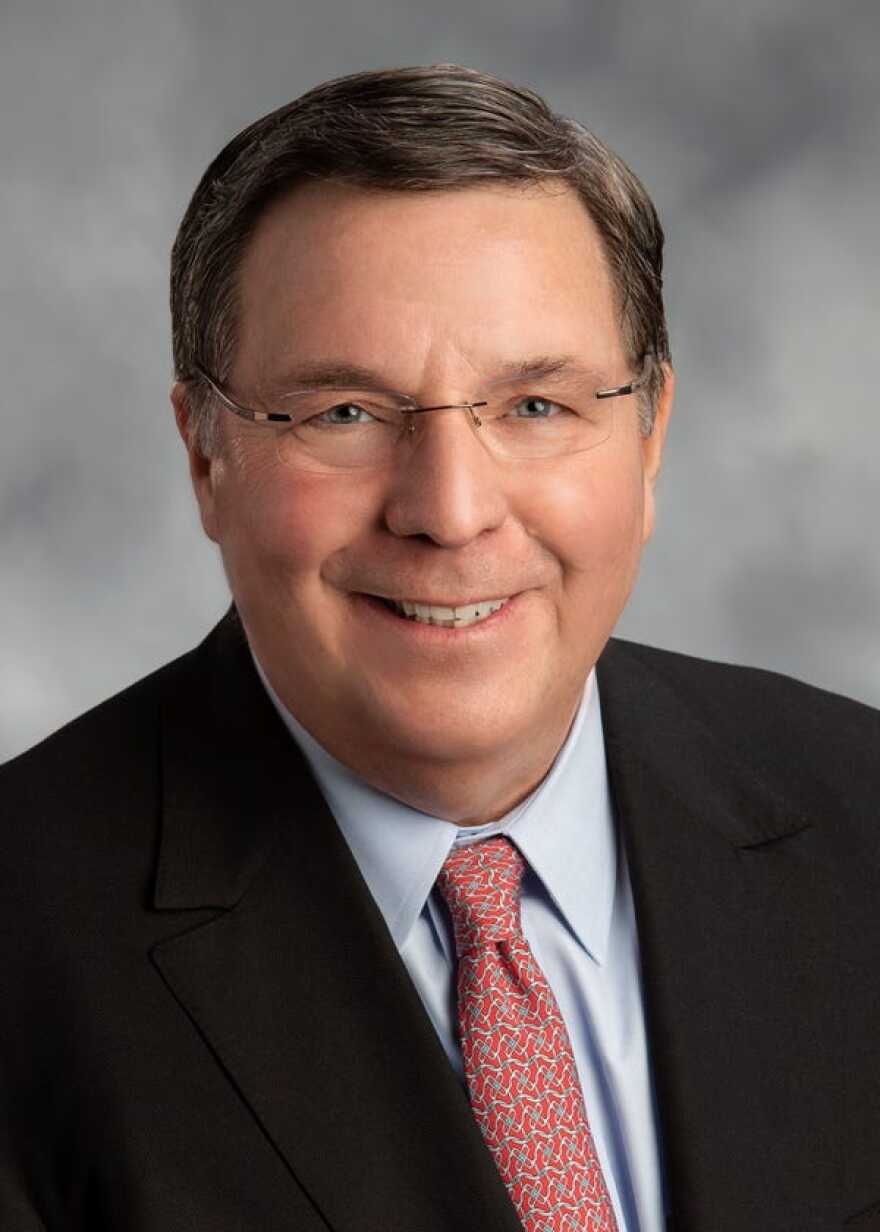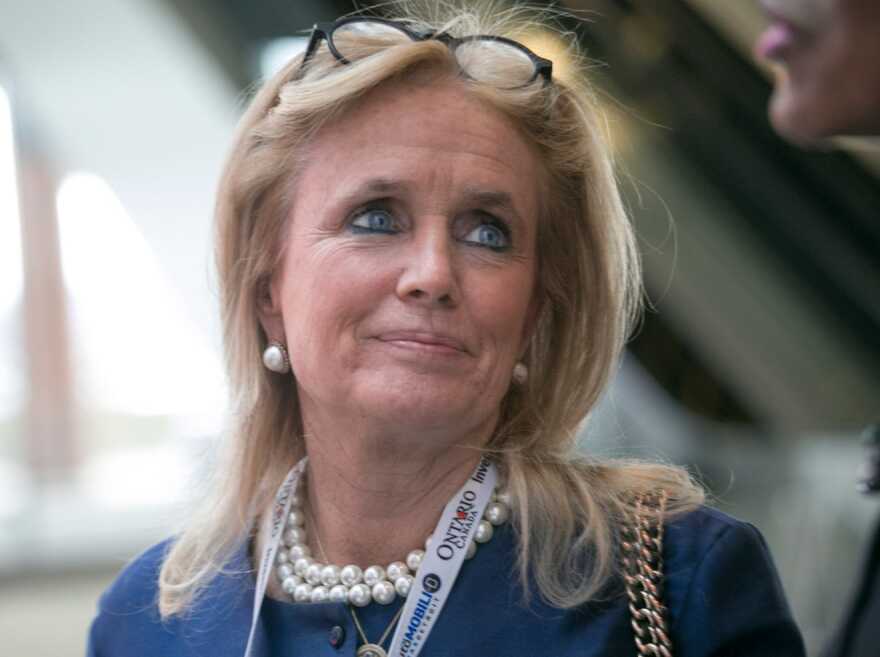Some hospital executives in southeast Michigan received bonuses this year, shortly before their health systems laid off thousands of workers and asked the federal government for a bailout as the COVID-19 pandemic swept across the nation.
Two of Michigan's largest nonprofit hospital systems, Beaumont Health and the Henry Ford Health System, awarded those bonuses in March. And then, as the novel coronavirus caused a financial crisis at their hospitals, Beaumont and Henry Ford turned to the federal government for help.
Beaumont received $377 million in taxpayer funds, and Henry Ford collected $375 million, according to the two hospital systems.
Henry Ford said it paid its bonuses in early March. Beaumont said it paid its bonuses on March 13, the same day it got its first COVID-19 patient. Neither Beaumont nor Henry Ford would disclose how much they paid in bonuses earned by high-ranking executives and doctors and based on their work in 2019.
But for work performed in 2018, bonuses for dozens of top-tier employees cost Beaumont more than $12 million and Henry Ford $14 million, according to tax returns analyzed by the Free Press.
Beaumont CEO John Fox declined to disclose the amount of his bonus, telling the Free Press in an interview that it would be revealed in the hospital system's next set of tax returns to be filed later this year. Fox received a bonus of $1.6 million for his work in 2018.
Fox said in the August interview that bonuses are based largely on "quality, safety and patient satisfaction. It’s well over half of the incentive plan."
He said the Beaumont board's compensation committee typically approves bonuses in February and the bonuses are paid by March 15 in keeping with an Internal Revenue Service rule.
After Beaumont paid its bonuses, the health system reported its first COVID-19-related death on March 18.
Marching to a bailout

In an opinion piece published four days later in the Free Press, Fox wrote that an "immediate healthcare financial crisis is looming." He also detailed that Beaumont had eliminated 80% of its surgeries and significant portions of its imaging procedures, such as mammograms and X-rays, to make way for less lucrative COVID-19 patient care.
The financial crisis, Fox wrote, "will be large and come on faster than people expect and could cripple the core of America’s hospital systems during this pandemic."
Fox also wrote that Beaumont had spent weeks converting much of the eight-hospital system into a COVID-19 testing and treatment organization. He called for a nationwide superfund of as much as $600 billion to offset a "revenue implosion.”
The next month, Beaumont requested — and received — federal help under the Coronavirus Aid, Relief and Economic Security (CARES) Act, which included $175 billion for health care providers nationwide.
Several members of Congress questioned Beaumont's decision to pay bonuses this year. All have Beaumont hospitals in their districts.

"It's just reprehensible if they're giving themselves bonuses with the knowledge they’re going to ask for a bailout from the taxpayers and relief from taxpayers and have to lay off people," said U.S. Rep. Andy Levin, a Democrat from Bloomfield Township whose district includes Beaumont's largest campus, Royal Oak. "If they gave themselves big bonuses before asking for federal aid and furloughing lots of people, it's not acceptable."
Democratic U.S. Rep. Debbie Dingell of Dearborn said she told Fox in September that when the public learns Beaumont took a CARES Act bailout and also paid its top executives their bonuses, it "is not going to play well. People are going to be really upset."
Dingell said she asked Fox about the bonuses at a meeting to discuss Beaumont's merger talks with an out-of-state hospital system, Advocate Aurora Health.

"It will be a political problem for you, I did say that," Dingell recalled telling Fox at the meeting, also attended by U.S. Rep. Rashida Tlaib of Detroit.
Andrea Acevedo, president of SEIU Healthcare Michigan, a union that represents 11,000 hospital and nursing home workers in the state, said some of her members are workers at Beaumont who cared for COVID-19 patients, and some of those workers got the virus themselves.
About 300 Service Employees International Union (SEIU) workers at Beaumont were laid off, but most have been brought back. However, some of those returning workers were placed in part-time jobs, Acevedo said.
She said Beaumont's decision to pay bonuses as the pandemic approached was "egregious." Most workers haven't seen similar bonuses, Acevedo said, and executives wouldn't be receiving them "if it weren't for the excellent care workers are giving" to Beaumont's patients.
A Beaumont lab employee who spoke to the Free Press on condition of anonymity for job protection reasons, mentioned receiving only $500 in hazard pay during the pandemic.
"It took a long time for them to give us that," the worker said.
Laying off workers
Julie Perry, who worked as a physical therapist assistant at Beaumont in Royal Oak, said her job was eliminated in April, after 33 years.
"I never thought I wouldn’t retire from Beaumont," said Perry, a widow who lives in Roseville with her son, daughter and two grandchildren.
And while she got a severance package — 16 weeks of pay — she said it's still been tough financially. She has a part-time job and is looking for full-time work. "I'm 58, people don't want to hire someone my age," Perry said.

Given the cutbacks, it was unethical for the hospital system to pay bonuses this year, a furloughed Beaumont employee told the Free Press.
If the executives had not taken their bonuses, "a few people would still have their jobs," said the furloughed worker, who spoke on condition of anonymity to protect the chance to return to work.
Several Beaumont insiders including doctors said they oppose the idea of a nonprofit hospital system rewarding executives with bonuses while furloughing workers and eliminating jobs.
In April, the health system reported a $278 million loss for the first quarter. After that financial setback, Beaumont laid off 2,700 workers and eliminated 450 positions.
The Free Press reached out to 14 directors on Beaumont's board to ask about the payment of bonuses when a pandemic was on the horizon. Few were willing to talk.
One of the directors, Dr. Robert Williams, said he could not recall any discussion about the bonuses. Martha Quay, another director, said in a phone call she would have to check her notes, but wasn't at home to do so, and then hung up. A third director, Gerson Cooper, declined to comment.
Managing Henry Ford
Similarly, Henry Ford Health System paid out executive bonuses in March. Shortly after, officials say they were forced to furlough 2,800 employees.
In a statement, Henry Ford spokesman John Gillespie said the health system’s compensation program, including bonuses, benefits a wide cross-section of leaders.
“The goals for these payments were set far in advance in 2019 and approved by our board of directors to be awarded in early 2020 once performance results were determined,” Gillespie wrote.
Henry Ford officials declined to say how much they awarded in bonuses. Gillespie said this compensation information will be disclosed when Henry Ford files its federal tax returns, expected next month.
Critics questioned why Beaumont and Henry Ford would still pay bonuses when a pandemic was coming.
"Why would you pay out millions of dollars to friends at the top, knowing you would have to lay off housekeepers, nurses, respiratory therapists, the people doing the hard work of going in and out of those rooms every day?" said Katie Scott, vice president of the Michigan Nurses Association.

Experts in the business of health care also questioned Beaumont's and Henry Ford's decision.
"If you're asking for a bailout, how can you take bonuses?" said Wally Hopp, a business professor at the University of Michigan who specializes in the delivery and quality of health care. "Bonuses are optional. They don't have to give them. ... The optics of it are definitely not good."
Alan Cantor, a New Hampshire-based nonprofit consultant, said Beaumont and Henry Ford executives could have declined or deferred their bonuses, or they could have donated them back to their hospital system. (Top Henry Ford executives donated as much as 25% of their salaries for a period of time to employee relief funds, according to the health system.)
It was unclear how much discretion the health systems had in awarding bonus pay.
For Beaumont CEO Fox, his bonus has been a large chunk of his overall compensation.

According to Beaumont's tax returns, Fox was awarded a $1.6 million bonus for his work in 2018. His total compensation that year was $5.9 million, a figure that includes $1.7 million reported on previous tax returns.
A Free Press analysis of the most recent tax returns available to the public found that Beaumont's spending on bonuses has grown steadily in recent years. The health system spent almost $12.5 million on bonuses for 43 executives and doctors for work done in 2018. That’s up from $11 million on bonuses for work done in 2017 and $9.4 million for work done in 2016.
Beaumont spokesman Mark Geary said the newspaper's totals are incomplete because they do not include all of the bonuses awarded. That's because the IRS doesn't require certain executives, and their bonuses, to be disclosed, he said.
One of the biggest bonuses for work in 2018 went to an executive who hasn't been at Beaumont in years — Brian Connolly, who received $1.3 million. Connolly was the president and CEO of Oakwood Healthcare until it merged with Beaumont in 2014. Connolly, who left after the merger, received the money under the terms of his employment agreement with Oakwood.
Other large executive bonuses went to Carolyn Wilson, chief operating officer ($594,467); Dr. David Wood, chief medical officer ($496,904) and Susan Grant, chief nursing officer who oversees 10,000 nurses ($742,784).
“Recruiting, retaining and motivating leaders requires nationally competitive compensation and benefits,” Geary said in an email response to questions about specific bonuses.
At Henry Ford, the health system spent $14 million in bonuses on 50 executives and doctors for their work in 2018, according to its most recent publicly available tax records. For work in 2017, Henry Ford spent $15.5 million on bonuses, and the same amount, $15.5 million, for 2016.
The biggest bonus for work in 2018 — $1.47 million — was awarded to the system's president and chief executive, Wright Lassiter III. His total compensation was $3.56 million. Robert Riney, the chief operating officer, received a bonus of nearly $600,000 for the same time period.
Southeast Michigan is home to several kinds of hospital systems: for-profit, nonprofit, academic and government. The Free Press focused on the nonprofit systems because they operate the majority of hospitals in the region.
In addition to Beaumont and Henry Ford, the Free Press asked three other tax-exempt hospital systems whether they had paid executive bonuses this year while seeking and accepting federal aid. Livonia-based Trinity Health Michigan suspended its bonuses this year in response to the financial impact of COVID-19, said spokeswoman Laura Blodgett.
Warren-based Ascension Michigan declined to release information.
Grand Blanc-based McLaren Health Care does not make bonus determinations until closer to the end of the calendar year, a spokeswoman said in an email.
Seeing better times
At Beaumont and Henry Ford, officials say they are now recovering financially from the onset of the pandemic. Henry Ford, for example, has brought back 92% of its 2,800 furloughed employees, according to a spokesman.
Aaron Gillingham, Beaumont's chief human resources officer, said in an interview that the hospital system laid off about 2,700 employees from April through June. Beaumont has since brought back about 2,100 workers while 300 are still on furlough. The remainder do not wish to leave home during the pandemic, according to a hospital spokesman.
And while Beaumont eliminated 450 positions, 41 of those employees have returned to other jobs at the health system, according to officials.
Fox said in his August interview with the Free Press that Beaumont revenues were running at about 92% of pre-COVID-19 levels. "We revised our budget in the middle of COVID so it’s coming back faster than we had originally projected," Fox said.
It's unclear what kind of hit Fox has taken to his compensation. In April this year, Fox said he was taking a 70% cut to his base pay and forgoing a bonus. In his interview with the Free Press in August, he said the pay cut ended that month, but he did not mention the future of his bonus.

As Beaumont paid bonuses to its executives earlier this year, its medical staff expressed frustration with Fox and his team, according to a recent internal poll.
"The survey tells me that we really need to double our efforts in communicating with our doctors, and frankly listening to them on the specifics because ... it really gets down to what exactly are they concerned about," Fox said in the interview.
Fox blamed the doctors' discontent, in part, on a 2019 change in the way it reimburses them, lowering payments to many doctors. But some Beaumont doctors told the Free Press that physicians are unhappy with how Fox has run the hospital system since he took over as CEO in 2015.
The medical staff's complaints about Beaumont's management have caught the attention of major donors to the Beaumont Health Foundation, which supports the hospital system.
In a Sept. 18 letter to the Beaumont board of directors, prominent foundation donors wrote that "it appears that on your watch those doctors, nurses, and staff members, at all levels, are extremely dissatisfied with the performance and consequences of Beaumont’s management," also noting the voluntary or forced departures of highly regarded staff. They called the situation a "crisis."
Mark Shaevsky, who spent 17 years on the Beaumont board and currently advises small and mid-size companies, told Michigan Attorney General Dana Nessel that operations at Beaumont Health had become dysfunctional, "as reflected in complete discord between top administrative executives and Beaumont professionals."
Shaevsky said in a Sept. 4 letter to Nessel that Beaumont professionals had lost "all confidence" in management, "resulting in the jeopardizing of patient health and safety." Shaevsky said he was asking Nessel, in her role overseeing charitable interests in the state, to intervene in Beaumont's governance.
In an interview, Shaevsky said he did not have a problem with Beaumont's decision to pay bonuses in 2020. He said the executives and doctors earned that money in 2019.

"It was a different world in 2019 and the world has changed. Once the people have gotten their money, it means it’s gone, it’s over with," Shaevsky said. He said the top executives, however, should have taken steeper cuts to their 2020 pay.
Tlaib, the Democratic congresswoman from Detroit, chastised Beaumont for behaving more like a for-profit corporation than a tax-exempt hospital system when it gives out bonuses while also asking for a bailout.
"They hide behind this curtain that they're a health care provider; they hide behind the (tax-exempt status); they hide behind the doctors and nurses and the caregivers on the ground," Tlaib said. "It's very obvious decisions are not made in the best interest of patients who need their care."
Contact Jennifer Dixon: 313-223-4410 or jbdixon@freepress.com
Get involved:The Detroit Free Press, Bridge Magazine and Michigan Radio are teaming up to report on Michigan hospitals during the coronavirus pandemic. If you work in a Michigan hospital, we would love to hear from you. You can contact Kristen Jordan Shamus at kshamus@freepress.com, Robin Erb atrerb@bridgemi.comor Kate Wells at Katwells@umich.edu at Michigan Radio.


